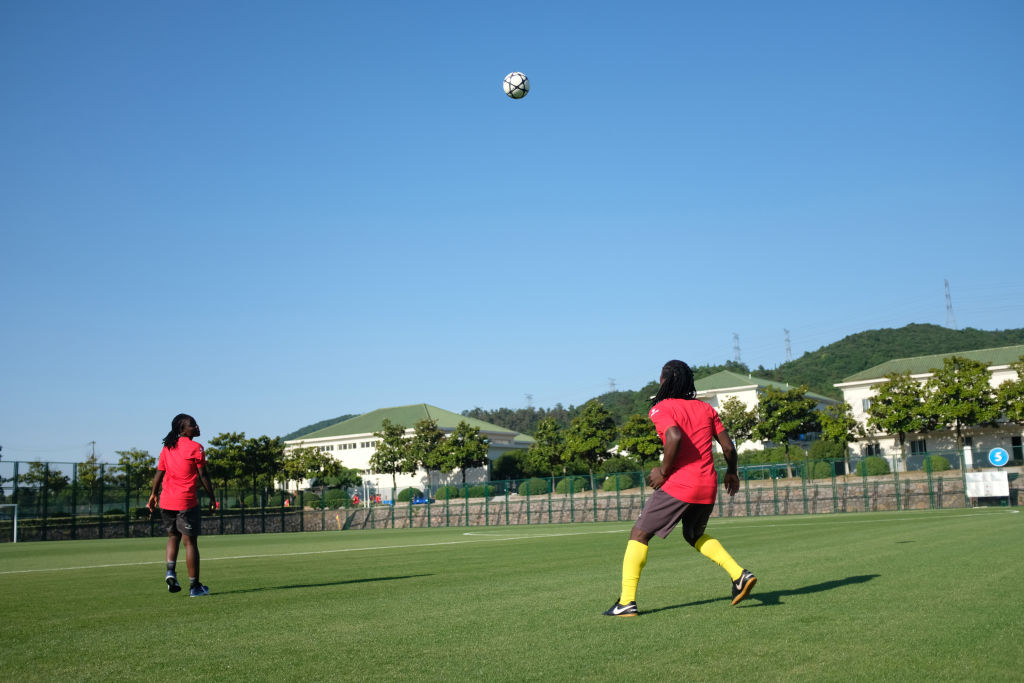- Friday, April 26, 2024

By: Shubham Ghosh
TABITHA Chawinga, a 25-year-old star female football player from Malawi, has urged her country’s football authorities to bring in safeguards to protect women from abuse at different levels of the game.
Chawinga, who became the southeastern African nation’s first woman to sign for a European team when she joined the Swedish club Krokom/Dvärsätts IF in 2014, said she was forced to strip in public during a match more than once to prove that she was female and faced a harrowing time over the incident, the Guardian reported.
She also said that she was regularly trolled on social media about her looks.
Chawinga doesn’t want the same to happen with other people.
“I don’t want other people to face the same. It makes me think, if they are insulting someone they have just met at the football ground, what would they do if I was born in their family. Could they have killed me?” she told Guardian in a telephone interview from China, where she now represents Wuhan Jianghan University FC in the Chinese Women’s Super League and was voted ‘Player of the Year’ for two consecutive years.
Chawinga, who has led the Malawi national team and was ranked among the top 100 female footballers globally by the Guardian in 2020, recalled her experience while playing for a girl’s school team at the age of 13. She was forced to undress in front of her opposition to prove her biological identity. She had to do it after her opponents did not believe she was female because of her physical appearance and good game skills.
The experience was shattering and she had even quit the game for a year.
“I had never been so devastated and I cried at the embarrassment that I had been exposed to. I wanted to walk out right away but somehow my teammates consoled me and I decided to finish the game,” she said.
It was the final time she had to undergo such an experience.
A year later, when Chawinga played for the Lilongwe women’s football team DD Sunshine – her first step into professional football – she had a similar experience.
“We were participating in a Presidential Cup match and for our first game we travelled to Blantyre to play Blantyre Zero. It was a very difficult game and while it was being played, I was undressed right in the ground,” Chawinga, who began playing football with her male cousins at a young age, said. “I lost it right at that moment and we ended up losing the game as well.”
David Dube, the owner of DD Sunshine, said the club lodged a complaint with the Football Association of Malawi at the time but did not get any response.
Chawinga, who hails from northern Malawi’s Rumphi district, said she had not taken up the issue earlier because she was very young but now she wanted to speak out.
“When I was being stripped, I was young and I didn’t know my rights. But if we talk about rights, they should be implemented. I am encouraging those women who have a passion for football that everything is possible. And being born different is not the end of the world,” Chawinga, whose sister Temwa also plays in China, said.
“I would like to ask the government and the sports officials to make sure that the rights of every player are protected. This is the way I was born and I know I am God’s creation. I can’t change how I look,” she said.
“I am asking the women’s football officials to promote the wellbeing of players by protecting their human rights.”
Maggie Kathewera Banda, founder and executive director of the Women’s Legal Resources Centre, supported Chawinga and said what she went through was an act of gender-based violence. “This is a violation of someone’s dignity,” she said.
Alfred Gunda, general secretary of the Football Association of Malawi who was not there when the complaint was made by Chawinga’s club, condemned the incident. He told the Guardian: “What happened is not right and we cannot condone it and that’s why we encourage, in this day and age, that officials take responsibility and take care of the players as their own kids, and also make sure that any incidents that happen are reported and the right measures are taken so that we protect our girls.”
He also added that the association ran youth development programmes and an Under-15 school programme to encourage more girls to play football.
![]()